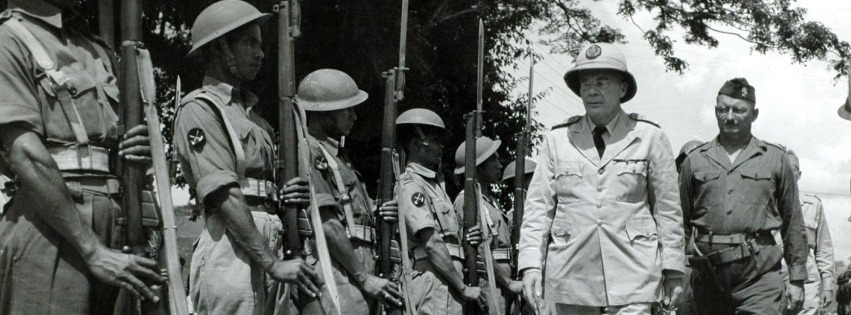KITLV/Royal Netherlands Institute of Southeast Asian and Caribbean Studies

- This event has passed.
Van Vollenhoven Lecture on ‘H.J. van Mook and Good Governance in Indonesia and the World’
12/11/2015 @ 16:00 - 17:30

The Van Vollenhoven Institute for Law, Governance, and Development has the pleasure to invite you to the Van Vollenhoven Lecture 2015: ‘Leading is not Lording H.J. van Mook and Good Governance in Indonesia and the World’, by Tom van den Berge (KITLV).
In 1919 H.J. van Mook, a disciple of Van Vollenhoven, entered on his career as a civil servant in the Netherlands Indies. He worked his way up to be lieutenant governor general, the highest office in the postwar colony. During his career as a civil servant he strived for a ‘free and happy Indonesia’. According to Van Mook, the way to freedom and happiness was good governance. After 1949 he continued his career in the United States as professor of public administration in Berkeley and, later, as director Public Administration Division of the United Nations in New York. Was the progressive colonial civil servant the precursor of the postcolonial development-aid worker?
Details
- Date:
- 12/11/2015
- Time:
-
16:00 - 17:30
Organizer
- Van Vollenhoven Institute, Leiden University
- View Organizer Website
Venue
- Klein Auditorium, Academy Building, Leiden University
- Leiden, + Google Map
- View Venue Website



